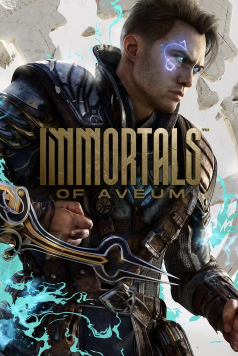When you think of Mass Effect, you think of epic stories and set pieces, interesting characters and a deep emotional connection to the galaxy around you; basically you think of the single player adventure. Mass Effect 3 introduced multiplayer to the series, and Andromeda has continued this new trend. Through an “exploit” of sorts with the EA Access free trial, I was able to amass 40 hours in Andromeda’s fast paced, exciting new multiplayer mode, which happened to earn me the third highest play time in the world.
Coming into this game I had a large amount of experience with Mass Effect 3 multiplayer, which was an addicting, yet flawed game mode. It featured a large selection of interesting characters and weapons, but a lack of diverse objectives and a rather large amount of glitches would often make it unplayable at times. It wasn’t expected to do as well as it did, but it was a cult classic. I expected more of the same with Andromeda, and whilst some of the negatives remain this time around, the positives heavily outweigh them.

The concept is fairly straight forward; with a maximum team of four players, you fight off seven waves of enemies, that increase in difficulty with each completed wave. Four of the waves are basic survival, with waves three and five being a random objective, and wave seven being the extraction round. Each of the four players get to pick from a roster of 24 diverse characters of varying races and abilities, and dozens of weapons. Anyone who has played Gears of Wars will no doubt be reminded of Horde mode.
You start out with a basic selection of characters including male and female versions of a human soldier, engineer, adept, vanguard, infiltrator, and sentinel, whilst the other 12 characters must be unlocked through card packs. When you complete a match, you receive a set amount of experience and multiplayer credits based on the difficulty you chose and how quickly your team completed the objective rounds. You use experience to make your character stronger, whereas credits can be used to purchase different levels of card packs. The drops of these packs are random, but guarantee certain levels of rewards based on the amount of credits needed to purchase them. There are four item tiers in total, bronze, silver, gold, and N7. For example, the lowest level pack, the basic pack, guarantees two bronze tier items, as well as a small chance at a silver tier. The highest level pack guarantees two gold tier items, as well as the highest chance for an N7 item.

Packs can also be purchased via micro transactions, and although this is slowing becoming an unbearable norm for many modern day gamers, the idea of paying real money for packs in Andromeda isn’t a particularly big deal, since there is no PvP component to the game. Weapons and characters from purchased packs are still random, and at higher difficulties an N7 tier character and weapon still might not be enough for a mediocre player to succeed, and so the pay-to-win aspect isn’t as bad as in other games.
Easily the best part about Andromeda multiplayer is the brand new fast paced combat system, which is complimented by the most smooth cover system I have played in a video game; you seamlessly transition into cover without the need for any button presses, and exit cover when you walk away. There is also a new boost dodge and jetpack boost jump, the latter of which makes the gameplay faster and more vertical, something lacking in Mass Effect 3’s multiplayer. The use of the new jump pack and dodge, as well the the increased movement speed and accuracy of enemies make Andromeda a must play for co op multiplayer fanatics, and Mass Effect fans in general. Its addicting and hard to put down, and even Mass Effect veterans who only pick up Andromeda for the campaign should enjoy it a lot.

While the combat and random loot drop systems are addicting, there are flaws to this multiplayer mode. A lack of differing objectives is a problem, as you will undoubtedly find yourself disarming the same objective, and killing the same key enemy multiple times in a decent sized play session. The servers are peer-to-peer in Andromeda, and so are subject to a fair amount of lag depending on players internet connections, sometimes making the fresh combat system difficult to use, and clambering onto ledges annoying at times. Hopefully we might see fix to this like For Honor received in the wake of terrible server issues, as it could become a significant flaw in an otherwise brilliant multiplayer experience.
Despite these flaws, Andromeda has created an addicting, fast paced, and downright fun addition to the landscape of cooperative multiplayer. It is an experience that die hard Mass Effect veterans and those new to the series can all enjoy, and provides a much needed change of pace to the current landscape of straight PvP multiplayer. On the lower difficulties you may get away with going in on your own with three random players, but the higher difficulties pose a significant challenge, one that should only be tackled with a full, communicating team. All things considered, Mass Effect: Andromeda’s multiplayer mode has its flaws, but is well worth your time if you get burnt out from single player, or want a refreshing change of pace from straight PvP game types. I can not recommend it enough, and hope this review will persuade those sceptical about it into giving it a shot.
Our full single player campaign review will come later once we have had a chance to adequately play through the story.







